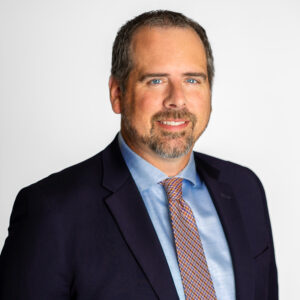By Matt Middendorp, as told to Jackie Hilgert
Forty percent of businesses in this country are owned by the baby boomer generation, people in their 60s and 70s. So there is this massive transfer of wealth happening right now. If you’re thinking about selling, it’s important to ask: “What’s important to me?” I tell business owners to at least explore the possibilities of an employee stock ownership plan, or ESOP.

At its heart, an ESOP is three things. An ESOP is a business or ownership transition tool. For owners who’ve had a company they’ve built that they’re very proud of, it’s a chance for them to transition out of the business while maintaining the integrity of the name on the door.
We’ve all heard stories of businesses that sold to third parties or private equity, and the business changed. It wasn’t always what the owner wanted for the people who worked there, and it wasn’t what the owner wanted for the community they were operating in. So making sure the name on the door still means something, while taking this illiquid asset and making it liquid, is the first facet of an ESOP.
ESOP is also an employee ownership vehicle. And here’s what’s neat about that. You are giving employees a stake in the company. They don’t have voting rights; they can’t change the wall color; they can’t change the name; they can’t hire and fire people. Control stays with current leadership. You need to have an internal leadership succession plan in place. But as far as owners go, the biggest thing you want to have is an engaged group. You want them invested.
ESOP is also an IRS Qualified Retirement Plan. Your employees participate for free; they don’t have to pay in like they do with their 401(k)s. So, as beneficiaries of an ESOP Trust, employees are building wealth in a way they would never have been able to do before. For owners, proportional to the amount of the business or bank that is employee-owned, you don’t pay federal or state income taxes on that percentage. So this benefits the employee and the business itself.
Creating an ESOP can make just as much money as selling to a third party or private equity. That’s something not a lot of people believe. People think, because you are providing for the employees and keeping the community link intact, there has to be a trade-off. But that’s not the case.
With an ESOP, all the employee needs to contribute is time, talent and energy. Typically, a year after an ESOP is established, there’s a 4 percent bump in efficiency. I can’t think of a single company that wouldn’t want 4 percent more out of what they have already. That means you’re more profitable.
It’s not always easy for a bank to be 100 percent employee-owned. A lot of banks have a small percentage, maybe 10 or 15 or 20 percent employee-owned because they want to give them a stake in the success of the institution.
It’s neat to see businesses grow more productive when an ESOP gets put in place. And, they have an easier time recruiting employees, and the employees tend to stay longer.
If you tell me about doing something to make our company more efficient, make it easier to hire and retain talent, especially today, that’s a powerful vehicle for making business more successful.
I spent 10 years in the banking industry, working my way up to the executive level, leading sales teams. I transitioned into my business, Sales Math Consulting, and traveled all over the country teaching bankers how to be more proactive to build more profitable relationships with their customers. And I loved doing that. When I had an opportunity to make an impact not just in banking but also in the broader business community through employee stock ownership plans by joining ESOP Partners, I couldn’t not join the team. And it’s really neat to see the impact employee ownership has on businesses all over the United States.
Matt Middendorp is a business consultant with ESOP Partners, Appleton, Wis. A former banker, Middendorp also co-founded Sales Math Consulting to help bankers grow more effective at sales. Middendorp spoke to BankBeat Publisher Tom Bengtson about ESOPs and other issues in a recent episode of BankBeat Conversations. Hear the full interview here: https://www.youtube.com/watch?v=QLGFFBERfGs
